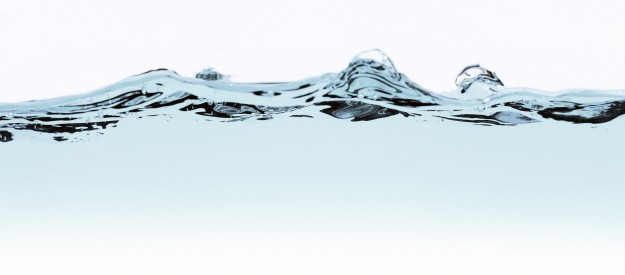"We are losing our attitude of wonder, of contemplation, of listening to creation and thus we no longer manage to interpret within it what Benedict XVI calls 'the rhythm of the love-story between God and man.'"
+ Pope Francis
The Vatican dives into the vital work of clean water

The Vatican's Pontifical Academy of Sciences today wrapped up a two-day gathering on one of life's most important elements.
Inspired by Laudato Si', and prompted by growing water crises across the globe, the event—"The human right to water: An interdisciplinary focus and contributions on the central role of public policies in water and sanitation"—followed the cycle of water to, through, and beyond human usage.
The event drew some ninety experts from across the globe and from many disciplines. Co-sponsored by the School of Dialogue and the Culture of Encounter, based in Argentina, the gathering blended faith, reason, and practice to look at policies that support or detract from the right to safe and easily accessible drinking water and sanitation.
The event concluded with a talk from Pope Francis.
Reported by Catholic New Service, the pontiff stressed the basic need of clean water "because where there is water there is life, making it possible for societies to arise and advance. Urgent, because our common home needs to be protected.”
“Each day — each day! — a thousand children die from water-related illnesses and millions of persons consume polluted water.”
The pontiff's comments are available as of now in Spanish and Italian at the Vatican website.
CNS goes on to offer this helpful insight from Rajendra Singh, a water conservationist from India who won the Stockholm Water Prize in 2015. Singh said that modern engineering and technology focus too heavily on “the maximum extraction of a resource.”
“Everything is managed,” he said; there is “no love or affection” or appreciation and respect for the natural resources at hand, CNS reports.
As many of you know, my career as an environmental regulator is in the treatment of wastewater, which is one of the most basic needs of any civilization. But alas it is one that often gets ignored—with deadly consequences. My daily work is with the men and women on the front lines of clean water. It's an honor to work with them and support them as a regulator, trainer, and chair of the board that licenses them here in my home state. It is my hope that such high-profile events like the one just wrapped up in Rome will shed a healthy light for users on this most vital of civil investments.
After all, water "is also a right which does not admit any possible disagreement and requires a conscientious work," the Vatican notes. "The United Nations and the [World Health Organization] generated data show that in 2014 about 748 million people still did not have access to drinking water. The universal nature of this right, which is a right to life itself, challenges us and calls for the construction of global, state and regional public policies vital for a full human existence and the development of nations."
The event's organizers stressed that
access to drinking water and sanitation is a comprehensive urban development action that helps urban planning and organization and also counteracts poverty and malnutrition. Access to this resource reduces vulnerability in the most excluded segments of the population. It allows, for example, reducing the risk for women and children in marginal areas who frequently need to travel endless kilometers in search of safe water, improves social mobility and reduces barriers in access to education and employment.
Water is, however, a recent topic in the international agenda. There is a need to provide legal, technical, social and political mechanisms that enable the construction of an authentic ‘culture of water’ in the common care of our common home. This is a major challenge for international organizations as well as estates searching to build a framework to cope with the existing crisis of access to water.
The Vatican sought "joint visions from scientists, politicians, educators and leaders are crucial in order to give way to a real culture of water and peace," as well as the "contribution of water and sanitation workers who organize themselves to be in the frontline of commitment with their communities, building and making real the public value of water and sanitation and also questioning any privatization or commercial attempt which may change the status of citizens to that of clients."
This last point is an important one. And I'm happy to see the Vatican tackling it. Or, more accurately, continuing to.
With the event wrapped up, there will certainly be more to come as the Pontifical Academy of Sciences continues to dive deeper into the implications for life on Earth of Laudato Si'.
As always, stay tuned.
The gathering's program booklet is here. For more on the Catholic perspective of water, check out this series of interviews with Dr. Christiana Z. Peppard about her book Just Water. And check out this post on Pope Francis and clean water.


















